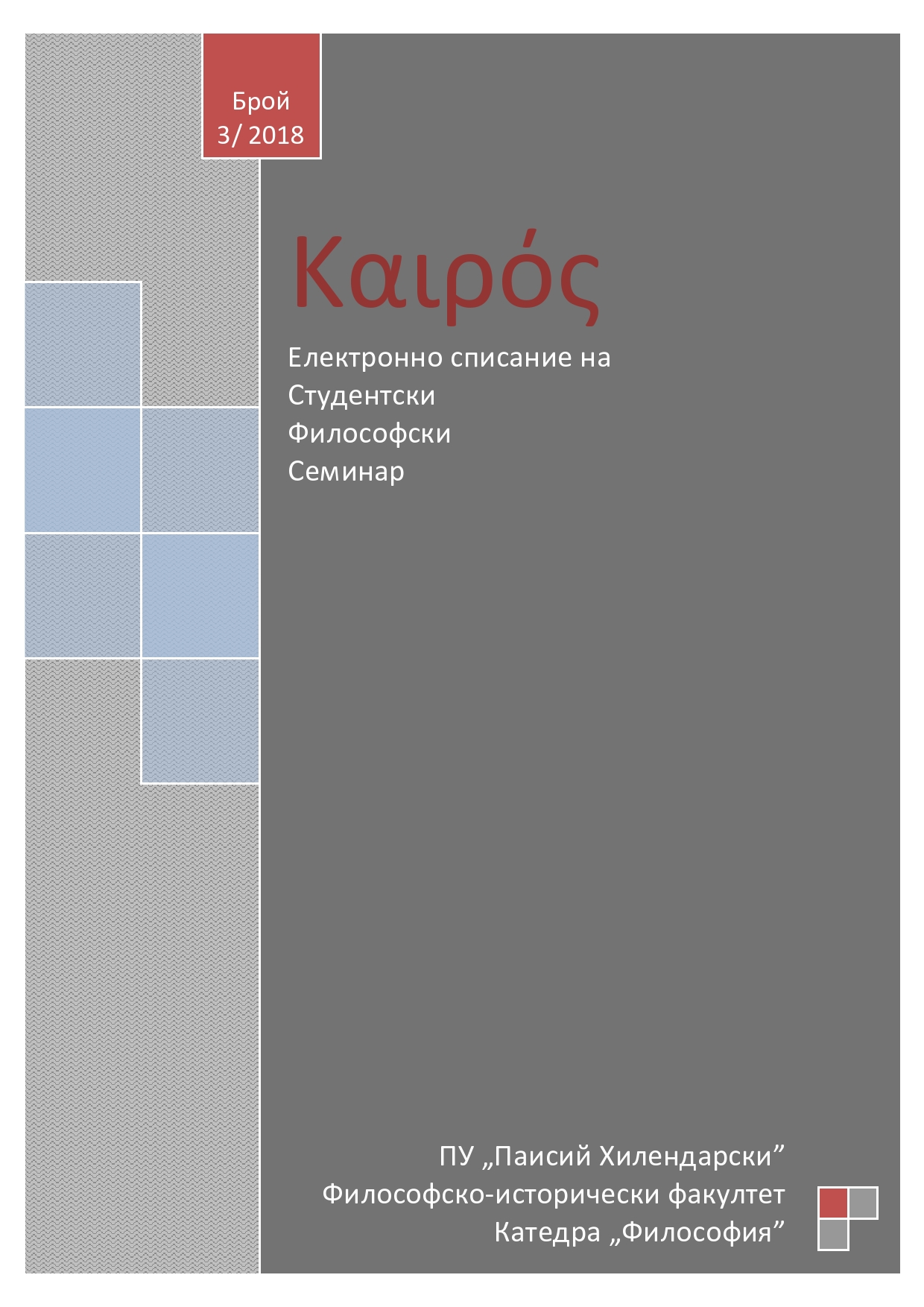Знание, диалектика, праксис
Knowledge, Dialectics, Praxis
Author(s): Andrey ZacharievSubject(s): Philosophy, History of Philosophy, Ancient Philosphy
Published by: Пловдивски университет »Паисий Хилендарски«
Keywords: dialectics; definition; predication; essence; essential predication; accidental predication; theory; practical ideal; idea; eidos; genos; eudaimonia; autarkeia; atharaxia; apatheia; ponos; arête
Summary/Abstract: The text aims at focusing on certain aspects of two very important theoretical models developed in ancient Greek philosophy, which treated everyday life as a crucial philosophical problem pertaining to the issue of the sense and final goal of human existence. The author’s intention is to show that the organization and management of everyday life as based on philosophical reflection in general, and on dialectical reasoning more precisely, was a locus communis in the highly practically oriented ancient Greek philosophy from Pythagoras onwards. One of the philosophical paradigms the article deals with is Pythagoreanism with its instructions on how to shape and follow a way of life that would make it possible for a member of the Pythagorean society (seen as a specific form of communal, shared existence) to achieve the state of individual perfection and salvation of the soul. By trying to point out the emphasis the Sophists of the 5 c. BC started placing on everyday life as a theoretical problem (having in mind its huge practical importance, of course), the author of the text comes to the example of Hippias. The same one who showed up at the Olympic Games wearing clothes, sandals and even a ring all made by himself. Something he did in an attempt to promote his concept of autarkeia by showing that the real sophistes (a man of knowledge) is able to live a fully independent everyday life being completely self- sufficient. So we get to the main point of interest in this article, which concerns both the meaning and function of autarkeia and arête in the context of the early and authentic Cynic philosophy. The author’s assertion would be that the Cynic conception of a specific modus vivendi, which will lead to the accomplishment of the practical ideal of arête, is actually a model based on deep dialectical reasoning and carefully drawn theoretical conclusions. In a few words, the Socratic skepticism towards both logical and epistemological status of definitions (accepted and developed further by Antisthenes who broadened his skeptical attitude towards predication in general) has lead the Cynics to the understanding that arête cannot be conceptually reached, but can only be pursued as an idea, i.e. as a solely practically understandable horizon. This is where the very name Cynics comes from, actually: it should denote those people who all the time, every day and hour, sniff around like dogs chasing the arête.
Journal: Καιρός
- Issue Year: 2018
- Issue No: 3
- Page Range: 35-50
- Page Count: 16
- Language: Bulgarian

